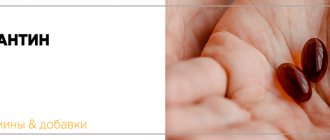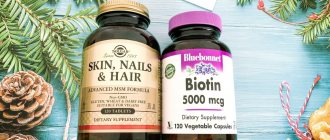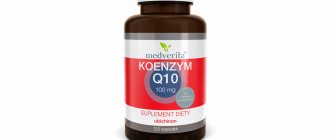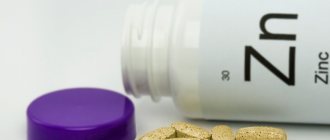A balanced diet is an important component for a healthy body. When an insufficient amount of beneficial microelements comes from food, the functioning of organ systems is disrupted. Against the background of deficiency, diseases develop that can lead to serious consequences. To prevent this, you need to pay close attention to the signals the body sends in response to a lack of nutrients. One of the microelements that women often lack is selenium.
Foods rich in selenium
It is somewhat incorrect to talk about foods that are rich in selenium, because food contains the mineral in tiny doses. However, selenium can be found in small dosages in many foods.
Selenium is present in sea and rock salt, as well as in seafood: squid, shrimp, fish, etc. It is also found in meat, offal, milk, and eggs.
Among plant products, it is most abundant in cereals, bran, corn, garlic, and mushrooms. It is also found in yeast.
Selenium intake standards
As mentioned above, a person does not need much selenium to maintain his health:
- for small children under 3 years old, 20 mcg/day is sufficient;
- up to 8 years - 30 mcg/day;
- up to 14 years - 40 mcg/day;
- children over 14 and adults - 55 mcg/day.
Selenium deficiency can occur in patients with impaired bowel function, as well as in people who eat food grown in selenium-deficient soil. An increased need occurs during pregnancy and breastfeeding - during these periods, women need 60 and 70 mcg/day, respectively. During times of stress or regular physical activity, it is also recommended to increase the selenium dose to at least 70 mcg per day. An even higher dosage is necessary for people with certain diseases: malignant tumors, Alzheimer's, Parkinson's, sclerosis, diseases that impair the functioning of the thyroid gland, and cardiovascular diseases. However, in any of these cases, the daily dosage of selenium should be prescribed by a doctor.
Important! An adult should not exceed a dosage of 400 micrograms per day, including selenium obtained from dietary supplements and food.
The mineral, taken in doses prescribed by a doctor, does not cause side effects. But a significant overdose can cause bad breath, fever, nausea, and in some cases, liver, kidney, and heart problems.
Biological role of selenium
Selenium functions:
- It is one of the minerals with an antioxidant effect, “working” in the body together with vitamin E. They prevent the formation of free radicals in the body, which has a healing and rejuvenating effect
- Improves the production of thyroid hormones, and therefore promotes the manifestation of their effects: improved metabolism, weight loss, improved skin condition, rejuvenation, etc.
- Protects the heart and blood vessels, slows down the development of atherosclerosis
- Participates in the regulation of cell division and renewal
- Improves the condition of the pancreas
- Contains many enzymes and hormonal substances
- Participates in ensuring visual acuity
- Protects the body from heavy metal salts, helps it get rid of toxins
- Increases the effectiveness of vitamin C on the body
- Strengthens immunity
- Accelerates tissue recovery after damage to various diseases and injuries
- Has an anti-cancer effect!
What is selenium, how is it beneficial for the body?
Selenium is a trace element, one of the minerals our body needs for proper and healthy functioning. The role of selenium for the human body is that it is part of selenoproteins, participates in the metabolism of thyroid hormones, protects DNA and cells from oxidative damage, and also improves the ability of the immune system to fight infections, bacteria and viruses.
In nature, selenium is present in two forms: organic and inorganic. Inorganic is contained in the soil, then transferred to plants and, through chemical reactions, takes on an organic form. These microelements can then enter animal bodies with plant foods and be deposited in skeletal muscles. A certain amount of selenium is also found in seafood, since this mineral can be found not only in the soil, but also in water.
Thus, a person can get selenium from food of plant and animal origin. The highest content of this mineral is found in:
- Brazil nuts and walnuts;
- tuna, halibut, sardines;
- ham, beef;
- products from grain crops.
It is impossible to name the exact selenium content in these and other products, since it depends on the selenium content in the water or soil in a particular area where fish were caught, grain products were grown, or feed for livestock, the meat of which is consumed by humans.
A couple more important notes: the level of selenium in any food is quite low, but with a balanced diet this should be enough for a healthy person. Heat treatment can further reduce the selenium content in food.
How is selenium beneficial for the human body?
Selenium deficiency is rare in healthy people, but a lack of this mineral can increase the risk or worsen the effects of HIV, Crohn's disease, Alzheimer's and many other diseases. In general, various scientists recommend increasing the dosage of selenium for dozens of different diseases: from asthma to arthritis, from dandruff to infertility. However, the results of their research still raise questions among the scientific community, so they need to be confirmed by control experiments.
The most common uses of selenium are for the following purposes:
- antioxidant effect;
- reducing the risk of cancer formation;
- protection of the cardiovascular system;
- preservation of mental abilities;
- maintaining thyroid health;
- strengthening the immune system.
Almost all of the beneficial properties of selenium are based on the fact that it is an antioxidant - these are compounds that prevent tissue damage from free radicals (metabolic by-products). Free radicals are necessary for the body, but tobacco products, alcoholic beverages, prolonged stress and even exercise can cause an excess of them. This leads to oxidative stress, which is too damaging to healthy cells.
The trace element selenium is useful for the body because it neutralizes excess free radicals. Thus, one of the key importance of selenium for the human body is the protection of tissues from oxidative damage.
This property of selenium for the body leads to another positive effect. While reducing oxidative stress, selenium protects deoxyribonucleic acid (DNA) from destruction and fights cancer cells. There are dozens of studies (the total number of their participants is more than 350 thousand people) that have proven that sufficient levels of selenium reduce the risk of cancer.
Other studies indicate the benefits of selenium for people undergoing radiotherapy treatment for malignant tumors. This microelement helps reduce numerous side effects of this type of therapy.
The next beneficial property of selenium for the human body is protecting the heart and blood vessels. The results of 25 scientific experiments showed that increasing selenium levels by one and a half times reduces the likelihood of problems with the cardiovascular system by almost a quarter. This is due to the fact that excessive oxidative processes lead to atherosclerosis and the accumulation of atherosclerotic plaques in blood vessels - this can lead to a stroke or heart attack.
Another reason why selenium is needed in the human body is to reduce the likelihood of the occurrence and progression of degenerative diseases. Additionally: Statistics show that most people with Alzheimer's disease are deficient in selenium. It is still difficult to say what in this fact is the cause and what is the effect. However, selenium supplementation has been shown to help improve memory and mental performance in people with Alzheimer's disease.
Another significant consequence of the antioxidant effect of selenium is the protection of the thyroid gland and its ability to produce hormones. The most selenium is found in the thyroid gland, so it is one of the most important elements for its functioning. The thyroid gland is very important as it regulates metabolism and ensures the growth and development of the entire body. Selenium deficiency is a common cause of thyroid dysfunction, such as autoimmune thyroiditis or hypothyroidism.
A final benefit of selenium as a body protector against oxidation is associated with strengthening the immune system. The health of any person depends on the immune system, which protects the body from pathogenic bacteria, viruses and parasites. Selenium deficiency harms immune cells and leads to a slower immune response. Additionally, studies indicate strengthening of immunity in people with AIDS, various types of influenza, tuberculosis and hepatitis C after increasing the dose of selenium.
Signs of selenium deficiency
If the selenium content in the body is insufficient, a person experiences weakness, muscle pain, a tendency to cardiovascular diseases, and the condition of the pancreas and thyroid gland worsens.
There is an increased incidence of illness due to weakened immunity. With a lack of selenium, the effectiveness of vitamin E entering the body decreases. This causes disruption of a number of physiological processes, accelerated aging, hormonal disorders, and infertility.
Excess selenium
As a rule, an increased amount of this element is observed when selenium metabolism is impaired. Also, its excess in the body can be observed in people involved in enterprises in certain areas: oil refining, foundry, electronics, etc. The risks increase for those who live in places with a high content of the mineral in the soil. An overdose cannot occur when consuming food.
With an excess of selenium in the body, a metallic taste appears in the mouth, disturbances in the functioning of the gastrointestinal tract occur, and fatigue and irritability develop. If the amount of an element in the body is not brought to standard levels, then other signs will appear:
- Brittle nails.
- Stains on teeth.
- Rash on the skin.
- Hair loss.
Optimal dosages
The daily dose of selenium for children is calculated based on age characteristics. In this case, standard dosage regimens look like this:
| Child's age | Selenium norm for children, mcg per day |
| Up to 6 months | 10 |
| From 6 to 12 months | 15 |
| From 1 year to 6 years | 20 |
| From 7 to 10 years | 30 |
Starting from adolescence, the dosage of selenium for children is calculated taking into account gender. Girls aged 10–14 years are recommended to take 45 mcg of active substance per day, and boys – 40 mcg. In the period from 15 to 18 years, the dose of selenium required for the full functioning of the body for children increases to 50 mcg.
The Best Dietary Supplements with Selenium
If you are at risk of selenium deficiency, then you may want to consider taking supplements with this mineral. You can choose complex vitamin-mineral supplements or preparations containing only the essential mineral. In any case, you need to choose only reliable manufacturers and buy supplements in specialized stores. This article will be a short analysis of the 2 best brands of dietary supplements and their products with selenium.
The first company is Solgar, an American manufacturer of premium quality dietary supplements at good prices. Solgar has been operating since 1947, is known throughout the world and has many positive reviews. It is also important that the company supplies large volumes of its products to Russia. This means that the likelihood of buying a fake is extremely low.
The most common dietary supplements with selenium from Solgar are yeast-free Solgar Selenium 250 tablets of 200 mcg and 100 pieces of 100 mcg. The standard price of these additives is 2400 and 750 rubles, respectively. The company names the main beneficial properties of selenium for the body as antioxidant effects and strengthening the immune system. You need to take the supplement 1-2 tablets per day (but not more than 200 mcg) with meals.
The second most reliable brand is also an American company - Now Foods. Unlike Solgar, it occupies a niche in the budget segment, although the quality of its products remains high. All other benefits of Solgar and Now Foods are also the same.
NOW Selenium is most often found in 2 packs: 180 capsules of 200 mcg and 250 tablets of 100 mcg. There are no differences in administration: the manufacturer also recommends taking 1-2 tablets per day with meals. There is only one contraindication - intolerance to the substance L-Selenomethionine. However, in any case, before using a dietary supplement, you should consult your doctor.
Why is selenium called the mineral of longevity?
This mineral acts as a powerful antioxidant and can take the place of vitamin E in biochemical processes, similar in action. The ability of a microelement to neutralize the negative effects of free radicals plays an important role in health. The benefits of selenium are reflected in the improvement in the condition and appearance of the skin, which becomes more elastic due to increased collagen production.
Selenium is important for women's health because it prevents gene mutations. When it is in sufficient quantity, the integrity of the structure of nucleic acids is preserved and the full transmission of hereditary information is ensured.









